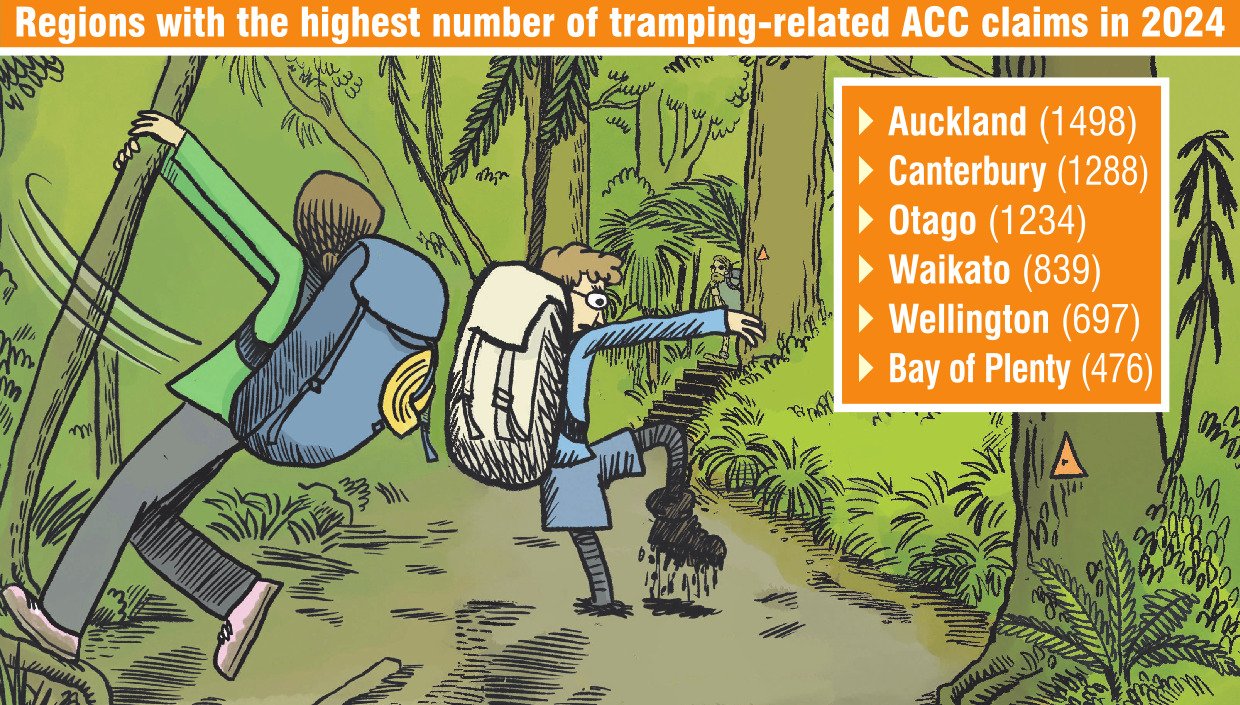
It is also the time of year when the number of people getting tramping injuries starts to ramp up — particularly in Otago and Southland, which had the third and seventh-highest number of ACC claims in New Zealand, during 2024.
ACC injury prevention leader James Whitaker said in 2024, the number of claims received nationwide in October was 652, in November there were 816, in December there were 910, and they peaked in the new year (January 2025) with 1291 claims, before falling away again in February (1031), March (1072), April (937) and May (574).
"ACC received a total of 9009 claims for tramping-related injuries in 2024, and it cost $11.7million to help people recover from these injuries."
So far this year (up until 22 September), ACC had received 6199 claims for tramping-related injuries, which had cost $9.2m to help people recover.
He said the most common injuries were soft tissue injuries (7652), followed by lacerations/punctures/stings (570), and fractures/dislocations (499).
Most walking and tramping injuries could be prevented, or their seriousness reduced, by thorough trip planning and sound decision-making, he said.
"Whether it’s a short walk, a day trip, or an overnight tramp, the bare minimum should be: warm clothes — insulation layers and thermal base layers — a rain jacket, head torch, extra layers, plenty of food and drink, and an appropriate emergency communications device."
He said many tramping-related injuries involved a loss of balance.
With this in mind, it paid to keep an eye out for anything that could cause you to trip or slip and it was important to wear sturdy footwear for support.
"It pays to tramp in a group, to stick together and make decisions as a group.
"You should choose a track that suits everyone’s abilities, and you should check the weather forecast, both in advance and on the day, as conditions can change quickly."

"It’s crucial to be prepared, so you can make safe decisions.
"If we all take a moment to think about the smart way to do things, we can reduce the risk of injury and continue to enjoy the activities we love — like tramping — while staying safe and injury free."
As part of River Safety Month, the New Zealand Mountain Safety Council (MSC) also urged anyone heading outdoors to think about river crossings before they went.
"Every year, people get into trouble in New Zealand’s outdoors when trying to cross unsafe rivers," MSC chief executive Mike Daisley said.
"These incidents are almost always preventable with the right knowledge, preparation and mindset.
"People venturing into the outdoors must treat rivers with the upmost respect and every crossing with extreme caution.
"No destination is worth the risk of an unsafe crossing."
MSC had a range of free online resources on river crossing skills, to help people prepare effectively for their trips and reduce the chance of getting injured, he said.













